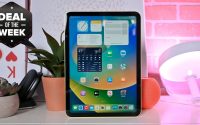Symantec Leaning Toward Apple?
 John Thompson, CEO of Symantec, made an interesting comment in response to an attendee at the recent Future in Review Conference in Coronado, California. When asked about Apple computers, he replied, “We think more people ought to buy them.”
John Thompson, CEO of Symantec, made an interesting comment in response to an attendee at the recent Future in Review Conference in Coronado, California. When asked about Apple computers, he replied, “We think more people ought to buy them.”
He added that Windows system vulnerabilities means that more virus programmers and hackers target PC’s. On the other hand, if more people do switch to the Macintosh platform, they might also be targeted more frequently (which in fact, is happening as this is being written). Even more frightening, these attacks are geared toward identity theft, going after data rather than the operating system.
“We shouldn’t assume that any one technology at any layer is sufficient to protect our notion of a connected world,” Thompson says. Multiple layers of security will be needed in order to protect data, regardless of operating system.
Interestingly, cyber-security has not gotten as much attention from the U.S. government as Thompson feels it should, owing in part to budget battles and the drain on the U.S. treasury caused by military actions in the Middle East and tax giveaways to large corporations. This is surprising, in light of recent actions by government and corporate agencies designed to keep citizens under increasingly close surveillance.
What has concerned Thompson the most, however, is potential competition from Redmond as Microsoft enters the security software market. While Symantec is a fairly heavy hitter in the field of cyber-security, it is nowhere near as large as Microsoft. “We are concerned (whether or not) they will play fairly. If they do something that is unfair, then that will be something that is difficult to compete against, but we’ll have other venues for making our point,” Thompson says.
 John Thompson, CEO of Symantec, made an interesting comment in response to an attendee at the recent Future in Review Conference in Coronado, California. When asked about Apple computers, he replied, “We think more people ought to buy them.”
John Thompson, CEO of Symantec, made an interesting comment in response to an attendee at the recent Future in Review Conference in Coronado, California. When asked about Apple computers, he replied, “We think more people ought to buy them.”
He added that Windows system vulnerabilities means that more virus programmers and hackers target PC’s. On the other hand, if more people do switch to the Macintosh platform, they might also be targeted more frequently (which in fact, is happening as this is being written). Even more frightening, these attacks are geared toward identity theft, going after data rather than the operating system.
“We shouldn’t assume that any one technology at any layer is sufficient to protect our notion of a connected world,” Thompson says. Multiple layers of security will be needed in order to protect data, regardless of operating system.
Interestingly, cyber-security has not gotten as much attention from the U.S. government as Thompson feels it should, owing in part to budget battles and the drain on the U.S. treasury caused by military actions in the Middle East and tax giveaways to large corporations. This is surprising, in light of recent actions by government and corporate agencies designed to keep citizens under increasingly close surveillance.
What has concerned Thompson the most, however, is potential competition from Redmond as Microsoft enters the security software market. While Symantec is a fairly heavy hitter in the field of cyber-security, it is nowhere near as large as Microsoft. “We are concerned (whether or not) they will play fairly. If they do something that is unfair, then that will be something that is difficult to compete against, but we’ll have other venues for making our point,” Thompson says.

